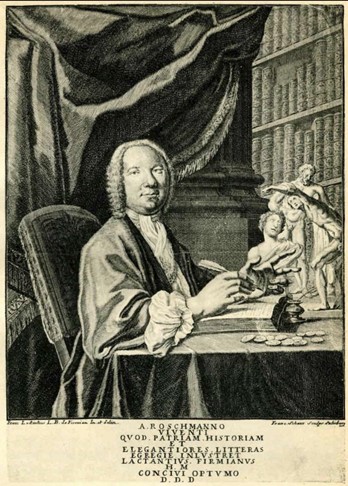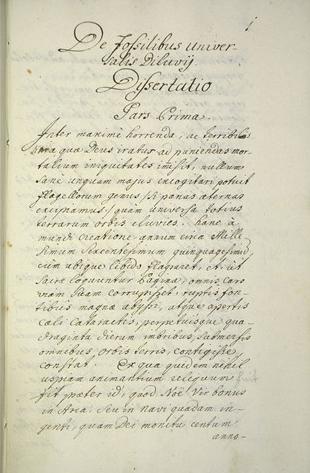
The Dissertations of the Academia Taxiana
Principal investigator
Mag. Dr. Isabella Walser-Bürgler
Researcher
Hanne Berendse, MA
Dr. Gábor Petneházi
Partner institution
Ludwig Boltzmann Institute for Neo-Latin Studies, Innsbruck
Library of the Tiroler Landesmuseum Ferdinandeum
Read-Coop
Key Data
FWF project number: P 36576-G
Term: 01.11.2023–31.10.2026
Funding: € 397.341,00


Abstract
The Age of Enlightenment saw a prospering of scholarly societies all over Europe, from the big state academies to small learned circles. Among the latter also ranked the Societas academica literaria, vulgo Academia Taxiana, which was founded in Innsbruck in 1738 by the Tyrolean polyhistor Anton Roschmann (1694–1760) and authenticated by statutes in 1741. Most of the members of this society, which existed until ca. 1760, were influential representatives of Austrian, northern-Italian and southern-German politics, religion and education. Throughout its roughly 20 years of existence, the Academia Taxiana met several times a month. During these meetings – all documented in minutes – the members focused on the exploration of historiographical topics. By means of Latin lectures called dissertationes, they presented their research plans and results to each other, pertaining to the different subdisciplines of history (e.g. hagiography, numismatics, local and regional history, universal history, literary history, the history of science, antiquarian history, archeology).
The dissertations given by members of the Academia Taxiana show the society’s Enlightenment mission on three levels: 1) On a formal level, the dissertations evince a design unaffected by the contemporary university disputations/dissertations. They present themselves as ‘unrestricted work-in-progress-speeches’ about yet unknown matters, they forego the integration of theses and they were discussed after their delivery in a democratic format devoid of any hierarchical order of precedence or speaker. 2) On a thematic level, historiographical topics prevail. This was innovative in so far as history, at that time, had not yet been established as a self-contained discipline in western Europe. Especially in Catholic territories (like in the Tyrol) and at Catholic universities (like at the University of Innsbruck), history was merely acknowledged as a rhetorical exercise. 3) On a methodological level, the dissertations are characterized by the application of empirical methodology, particularly source criticism. Thus, the Academia Taxiana significantly fostered the historiographical developments towards a modern science of history in the Tyrol, southern Germany and northern Italy.
This project collects, classifies and examines the entire corpus of Taxiana-dissertations extant in the historical Tyrol for the first time. Next to the critical edition and English translation of several selected paradigmatic dissertations, rhetorical analyses, historiographical investigations, the literary-historical contextualization of the dissertations within Neo-Latin academic oratory and the dissertations’ institutional embedding, all texts are digitally processed by means of the AI-based software Transkribus.
Project-related publications and activities
- Team workshop “Transkribus and its Concrete Possibilities: The Manuscripts of the Academia Taxiana”, Innsbruck, 20 November 2023
- Hanne Berendse: Unearthing the Past: Empirical Historiography and Object Based Research in Franciscus Ferdinandus Giuliani’s De fossilibus universalis diluvii, cum speciminibus Tirolensibus (1741). Conference paper for 'Antike Kulturen des Mittelmeerraums (AKMe)', 27 January 2024.
- Isabella Walser-Bürgler: Academic Dissertations Delivered in Private Libraries: The Dissertations of the Academia Taxiana. Conference Paper for '70th Annual Meeting of the Renaissance Society of America', Chicago, 21 March 2024.
Media coverage
- "Dem legendären Männerzirkel auf der Spur“ (Dolomiten, 07.06.2023)
- "Als der Fachvortrag erfunden wurde" (Die Presse, 13.05.2023)